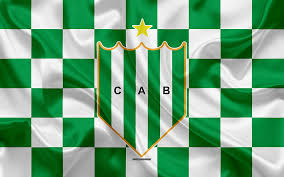
Rinus Michels: The Architect of Total Football
Rinus Michels was not just a football coach; he was a revolutionary thinker whose innovative ideas transformed the beautiful game. His philosophy of “Total Football” continues to influence modern tactics and coaching methods, making him a pivotal figure in the history of football.
The Legacy of Rinus Michels in Dutch Football
Rinus Michels‘ impact on Dutch football is unparalleled. As a player and later as a coach, he forged a new identity that would shape the national team’s style and strategy for generations to come.
The Birth of Total Football
The term “Total Football” summarizes a tactical philosophy emphasizing flexibility and fluidity on the pitch.
- Concept Overview: At its core, Total Football allows players to interchange positions seamlessly. Each player is expected to understand the roles of their teammates and take on varying responsibilities during different phases of play. This fluidity disrupted conventional structures in football and created a dynamic playing style.
- Michels’ Vision:
Michels envisioned a game where the positional rigidity often seen in football was eradicated. By encouraging players to engage in attacking and defensive duties, he fostered a sense of collective responsibility among players. His belief was simple yet powerful: every player should be trained to play in multiple positions.
- Cultural Significance:
The idea of Total Football resonated deeply within Dutch culture, which values teamwork and collaboration. Michels encapsulated this philosophy in a way that brought national pride and success on the global stage.
Influence on Dutch National Team
The Dutch national team underwent a significant transformation under Michels’ guidance.
- 1970 World Cup Qualification:
Michels led the Netherlands to a strong performance in the 1970 World Cup qualifiers. He emphasized the importance of a cohesive unit, which was evident in their games.
- Euro 1976:
The Dutch national team made an impression at Euro 1976, reaching the semi-finals by showcasing the principles of Total Football. Michels’ strategies not only brought results but also made the team a delight to watch.
- Posthumous Recognition:
Today, Michels’ legacy can be seen in how Dutch football analyzes and prepares for matches. His influence is entrenched in the language of Dutch football, especially within youth academies, where aspiring players are taught the virtues of a versatile playing style.
Michels’ Influence Beyond Borders
While Michels’ legacy is most pronounced in Dutch football, his ideas have transcended borders, reaching clubs and national teams worldwide.
- Global Impact: Michels’ concepts inspired international clubs and national teams to adopt similar philosophies. Teams in Spain, Germany, and beyond embraced Total Football principles, leading to innovations in their tactical designs.
- Adoption by Coaches:
Modern coaching icons such as Johan Cruyff, Pep Guardiola, and others attribute much of their philosophy to Michels’ work. They expanded his idea into various contexts, re-emphasizing its relevance and adaptability in today’s game.
- Legacy in Coaching Education:
Michels’ principles are taught in coaching clinics around the world. His practices instilled the importance of tactical awareness, adaptability, and teamwork in generations of coaches, shaping the future of football.
Rinus Michels: A Pioneer in Coaching Techniques
Rinus Michels was more than a tactician; he was an innovator in coaching techniques that revolutionized how the game is played and viewed.
Methods of Training
Michels introduced training methods that emphasized adaptability and understanding the game.
- Multiple Position Training:
Michels believed every player should be capable of playing in various positions. His training sessions included drills that focused on position-switching and understanding teammates’ roles within the framework of the game.
- Tactical Awareness:
He forged a unique coaching philosophy centered around the players’ understanding of the game. Rather than dictating every move, Michels encouraged players to read the game, facilitating quick thinking and decision-making.
- Simulation of Match Conditions:
Michels emphasized replicating match scenarios in training sessions. This method prepared squads mentally and physically for real matches, fostering an environment where players could practice under pressure and develop their skills.
Communication and Leadership
As a leader, Michels understood the importance of effective communication in training and matches.
- Building Relationships:
Michels fostered strong relationships with his players, creating a bond of trust that allowed for open communication. This trust encouraged players to voice their opinions, which led to a collaborative environment.
- Nonverbal Cues:
Michels recognized the power of nonverbal communication during matches. His methods taught players to anticipate situations and react accordingly without always needing verbal instructions.
- Motivational Techniques:
Difference between traditional coaching and Michels’ style lay in motivation. He was able to inspire players not just with words but through his unwavering passion for the game, instilling a shared vision.
Analysing Opponents
One of Michels’ most significant contributions to coaching techniques was his methodical approach to analyzing opponents.
- Tactical Scouting:
Michels introduced systematic scouting reports that focused on understanding the opponent’s strengths and weaknesses. He encouraged teams to prepare strategies based on in-depth analyses rather than relying solely on instinct.
- Game Theory:
Michels incorporated elements of game theory into his analysis. Understanding that football is a game of decision-making, he trained players to recognize patterns and make informed choices, resulting in a sophisticated game understanding.
- Film Study:
Long before video analysis became a common practice, Michels utilized film to study games. Watching matches and breaking down tactical elements helped players grasp concepts they would later implement.
Strategic Innovations Introduced by Rinus Michels
Rinus Michels was known for infusing strategic innovations that transformed football tactics, creating a lasting impact on the game.
The Role of the Sweeper
Michels is one of the early proponents of the sweeper system—a defensive role that provided additional coverage behind the backline.
- Defensive Flexibility:
The sweeper position allowed teams to adapt quickly to the attack, offering support and ensuring effective link-ups between defense and midfield. This role evolved based on Michels’ contests, allowing him to form a well-structured defense.
- Counter-Attacking Opportunities:
By employing a sweeper, teams could launch counter-attacks with purpose. Michels encouraged players to read the opponents’ movements and take immediate advantage of broken plays.
- Evolution of Roles:
Michels’ innovations in this area have led to modern interpretations of the sweeper role, even impacting how center-backs play today.
High Pressing Game
Another signature element of Michels’ strategic innovations was the implementation of a high pressing game.
- Retaining Possession:
High pressing challenged opponents to quickly make decisions, often leading to mistakes and turnovers in advantageous positions. By winning back the ball higher up the pitch, Michels’ teams could maintain consistent pressure.
- Offensive Play Integration:
The incorporation of high pressing transformed how teams initiated offensive plays, making transitions smoother and more effective.
- Robust Fitness:
The demanding nature of a high pressing game requires exceptional fitness levels. Michels’ training emphasized conditioning, ensuring players could execute this strategy effectively.
Importance of Positional Play
Michels’ tactical innovations extended to positional play, creating a profound impact on player positioning and spatial awareness.
- Shape and Structure:
Michels emphasized maintaining a structured shape while ensuring players had the freedom to make dynamic movements. Ensuring the team maintained its form during transitions was critical, and Michels instilled this discipline within his coaching philosophy.
- Creating Passing Triangles:
Players were taught to create passing triangles that leveraged space effectively, ensuring movement created opportunities while maintaining optimum player positions during defensive transitions.
- Interchanging Roles:
Inspired by Total Football, Michels’ innovations encouraged players to interchange roles based on situational demands, enriching the tactical flexibility of teams.



